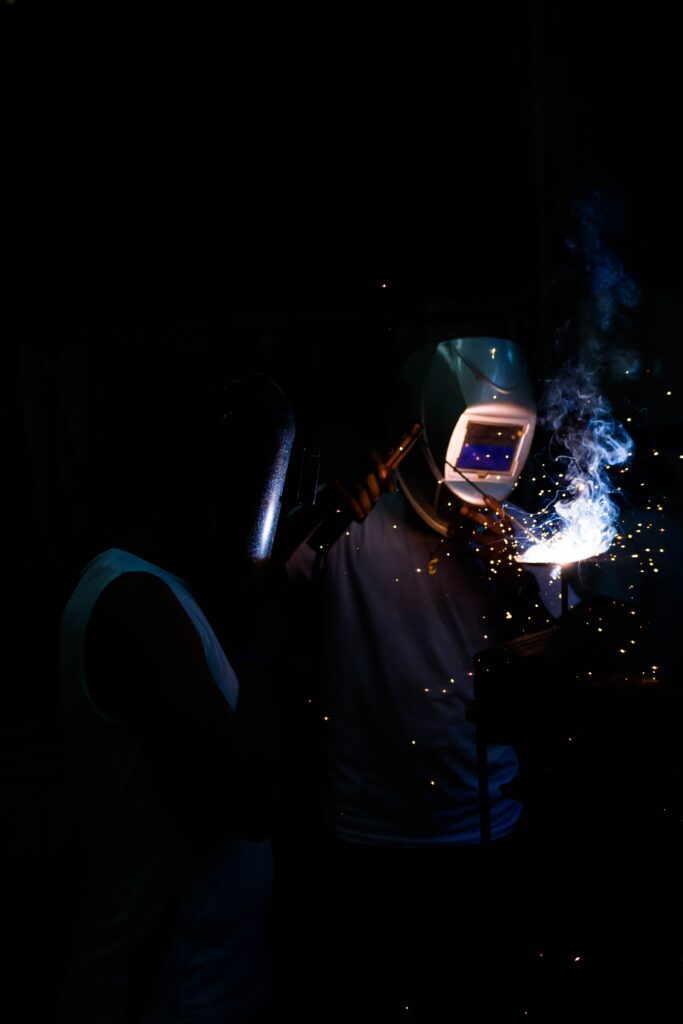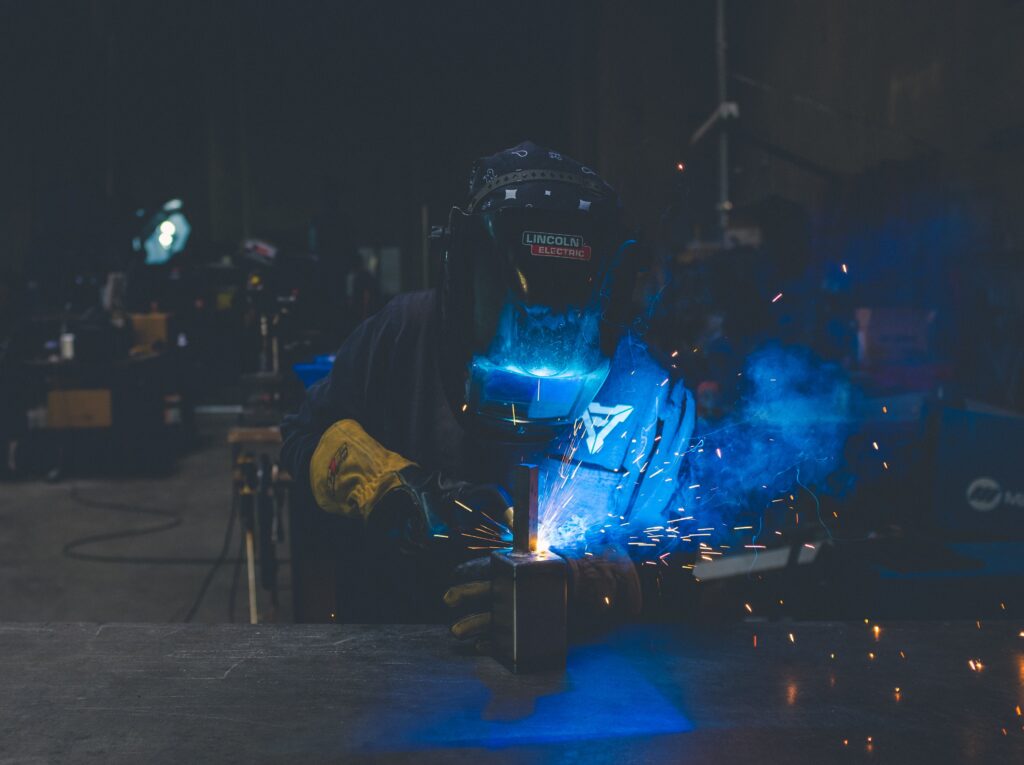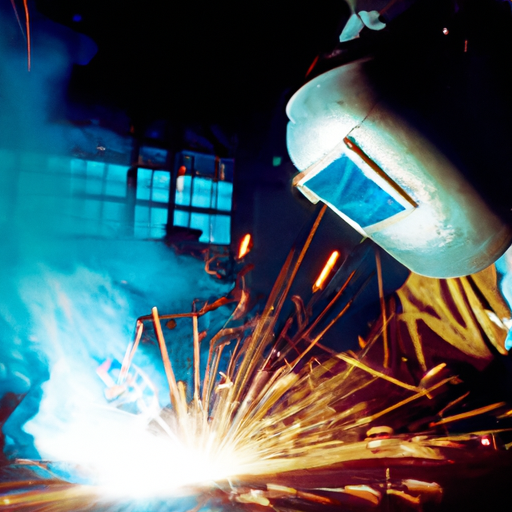Are welding certifications Worth It? This article explores the value and benefits of obtaining welding certifications. Whether you are considering a career in welding or already working in the field, understanding the importance of certifications can greatly impact your professional growth and opportunities. From increased earning potential to enhanced job prospects, this article highlights the advantages of becoming a certified welder and why it may be worth your investment.

Understanding Welding Certifications
Definition of welding certification
A welding certification is a formal recognition that validates the knowledge, skills, and competency of a welder in specific welding techniques and processes. It verifies that the welder has undergone training and testing to meet established industry standards.
Types of welding certifications
There are various types of welding certifications, each focusing on specific welding methods and techniques. Some common types of certifications include:
-
Certified Welder (CW): This certification indicates a welder’s proficiency in basic welding techniques such as arc welding, TIG welding, or MIG welding.
-
Certified Welding Inspector (CWI): CWIs are responsible for inspecting and ensuring the quality of welds. This certification requires extensive knowledge of welding codes and standards.
-
Certified Welding Supervisor (CWS): CWS is a mid-level certification that demonstrates the ability to oversee welding operations and ensure compliance with industry standards.
-
Certified Welding Educator (CWE): CWE certification is designed for individuals involved in teaching and training aspiring welders. It recognizes their competence in imparting welding knowledge and skills.
Requirements for obtaining welding certification
To obtain a welding certification, several requirements must be met. These may vary depending on the certifying organization and the specific certification being pursued. However, some common requirements include:
-
Training and Education: Prior completion of a welding program or apprenticeship is often a prerequisite for certification. This ensures that candidates have received proper instruction and practical experience in welding techniques.
-
Work Experience: Many certifications require a certain number of hours of hands-on welding experience. This helps ensure that candidates have practical knowledge and proficiency in their chosen welding methods.
-
Examination: Candidates must pass a written or theoretical examination that tests their understanding of welding principles, safety procedures, and industry standards. Additionally, a practical examination evaluates their ability to perform welding techniques correctly and produce structurally sound welds.
-
Continuing Education: Some certifications may have requirements for ongoing professional development to ensure that welders stay updated on advancements and changes in the field. This may involve attending workshops, seminars, or completing additional training courses.
Cost of Welding Certifications
Expenses involved in training
obtaining a welding certification involves certain expenses, including those related to training. Welding programs or apprenticeships, whether offered by technical schools or trade unions, usually have tuition fees. The cost of these programs can vary depending on the length and intensity of training.
Furthermore, there might be additional expenses related to textbooks, welding equipment, and protective gear, such as welding helmets and gloves. While these costs can add up, they are essential investments in acquiring the necessary skills and knowledge for certification.
Examination fees
Certification examinations come with fees that contribute to the overall cost. The fees typically cover the administrative costs associated with registering for the exam, processing applications, and conducting the evaluations. The costs for certification exams can vary depending on the certifying organization and the level of certification being pursued.
Cost of certification renewal
Welding certifications have a limited validity period, usually ranging from two to five years. Once the certification expires, it needs to be renewed for the welder to maintain their certified status. The renewal process typically involves paying a renewal fee, which helps cover administrative costs and ensures ongoing compliance with industry standards. The cost of renewal varies depending on the certification level and the certifying organization.
Benefits of Welding Certifications
Increased job prospects
Obtaining a welding certification significantly increases job prospects for welders. Employers often prioritize certified welders as they have proven their competency and commitment to their craft. Certification provides a standardized measure of a welder’s skills and knowledge, making it easier for employers to assess their qualifications. Having a certification sets individuals apart from other job applicants and opens up a broader range of employment opportunities.
Higher salary potential
Certified welders generally earn higher salaries compared to non-certified welders. Welding certifications demonstrate proficiency in specific welding techniques, increasing the value and marketability of a welder’s skills. Employers are more likely to offer higher wages to certified welders due to their increased level of expertise. The investment in obtaining a certification can pay off in the long run by unlocking higher salary potential.
Bolstering professional credibility
Welding certifications enhance a welder’s professional credibility in the industry. They serve as a testament to an individual’s commitment to skills development and adhering to industry standards. Certified welders are regarded as professionals who have met recognized standards of excellence, which can lead to increased trust and credibility among clients, colleagues, and employers. Certification adds a layer of professionalism and validates a welder’s expertise, strengthening their overall reputation.
Potential Drawbacks of Welding Certifications
Time commitment for training and testing
Obtaining welding certifications requires a significant time commitment. welding programs or apprenticeships can range from a few months to several years, depending on the desired certification level. Additionally, candidates will need to invest time in studying for the theoretical examination and practicing for the practical examination. The training and testing process can be demanding, necessitating dedicated effort and dedication.
Costs associated with obtaining and maintaining certification
While welding certifications offer numerous benefits, there are associated costs. As mentioned earlier, training programs, textbooks, equipment, and examination fees all contribute to the overall expense. Furthermore, the renewal fees for maintaining a certification add up over time. It is important to consider these costs and budget accordingly when pursuing a welding certification.
Lack of guarantee for job placement
While welding certifications increase job prospects, they do not guarantee immediate job placement. Securing employment depends on various factors, including local job market conditions, demand for welders, and competition from other certified individuals. Certifications, while valuable, are just one aspect of employability. Factors such as work experience, practical skills, and networking abilities also play a vital role in finding employment.

Assessing Job Market Demand for Certified Welders
Current trends in welding job market
The welding industry is experiencing steady growth, and the demand for certified welders remains strong. The construction, manufacturing, automotive, and aerospace industries, among others, rely heavily on skilled welders to carry out essential tasks. With the ongoing need for infrastructure development and maintenance, welders can find opportunities in a wide range of industries.
Geographical demand for certified welders
Demand for certified welders can vary depending on the geographical location. Areas with vibrant construction industries, such as urban centers or regions undergoing rapid development, often have a higher demand for skilled welders. Furthermore, geographic regions with large manufacturing sectors may require welders for fabricating and assembling various products.
Industries with high demand for certified welders
Certain industries consistently require certified welders due to the nature of their work. The oil and gas industry, for example, heavily relies on welders to construct and maintain pipelines, tanks, and other critical infrastructure. Shipbuilding and offshore construction industries also require certified welders for building and repairing vessels and offshore platforms. Other industries such as power generation, petrochemicals, and automotive manufacturing also provide substantial employment opportunities for certified welders.
Overview of Welding Certification Examination
Welding methods and techniques tested
The welding certification examination assesses a welder’s proficiency in specific welding methods and techniques. The examination may cover various processes like shielded metal arc welding (SMAW), gas tungsten arc welding (GTAW), gas metal arc welding (GMAW), and flux-cored arc welding (FCAW). Candidates are expected to demonstrate their knowledge and capability in utilizing these methods correctly and efficiently.
Topics covered in the theoretical examination
The theoretical examination evaluates a welder’s understanding of welding principles, safety protocols, and industry standards. Candidates are tested on their knowledge of welding terminology, metallurgy, and the interpretation of blueprints and welding symbols. Additionally, they will be assessed on their comprehension of weld defects, inspection techniques, and quality control procedures.
Practical examination requirements
The practical examination involves performing welding tasks using various welding methods and techniques. Candidates are required to produce visually acceptable welds, demonstrating their ability to set up and maintain welding equipment correctly. The examination typically evaluates the welder’s skill in performing welding positions, understanding welding procedures, and following safety protocols. Welds are inspected for visual defects, adherence to welding codes, and overall quality.

Duration and Renewal of Welding Certifications
Validity period of certification
Welding certifications are typically valid for a limited period, typically ranging from two to five years. The specific validity duration varies based on the certifying organization and the certification level achieved. After the expiration date, the certification must be renewed to maintain the welder’s certified status.
Renewal process
Certification renewal requires welders to fulfill certain requirements defined by the certifying organization. This often involves providing proof of continuing education, such as attending relevant seminars or training programs. Additionally, renewal fees need to be paid to cover administrative costs. Renewal processes aim to ensure that certified welders remain up-to-date with industry advancements and maintain their competence.
Conditions leading to certification revocation
Certification can be revoked under certain circumstances. This may occur if a welder fails to meet renewal requirements, violates codes of conduct, or engages in unprofessional conduct. Cases of negligence, non-compliance with safety regulations, or unethical behavior can lead to certification revocation. It is crucial for certified welders to adhere to professional standards and ethics to maintain their certified status.
Career Progression for Certified Welders
Job roles and positions for certified welders
Certified welders have a multitude of career options available to them. They can work in various industries such as construction, manufacturing, energy, transportation, and aerospace. Welders can start their careers as entry-level welders, performing basic welding tasks. With experience and additional certifications, they can progress to advanced positions such as welding supervisors, welding inspectors, or welding educators.
Opportunities for specialization and advanced certifications
Certified welders often have opportunities for specialization in specific areas of welding. They can pursue advanced certifications in specialized techniques, such as underwater welding, pipe welding, or robotic welding. Specializations enhance a welder’s expertise and open doors to in-demand and high-paying opportunities within niche welding sectors.
Long-term career prospects for certified welders
Certifications provide a strong foundation for long-term career growth in the welding field. With experience, a certified welder’s earning potential tends to increase, along with potential promotions and leadership roles. Welders can also choose to start their own welding businesses, taking advantage of their certification and reputation to attract clients and build a successful career.

Welding Certification Vs. On-the-Job Experience
Comparing value of certifications and experience
Both welding certifications and on-the-job experience have their own value and advantages. Certifications provide standardized recognition of a welder’s skills and knowledge, which is appealing to employers and clients. They demonstrate a commitment to professional development and adherence to industry standards. On the other hand, on-the-job experience provides practical know-how and problem-solving abilities that may not be covered in certifications alone.
Benefits of gaining experience while certified
Obtaining on-the-job experience while holding a welding certification can be highly beneficial. Hands-on experience allows welders to apply their theoretical knowledge in real-world scenarios, further refining their skills and developing a deep understanding of welding techniques. Additionally, experience enables welders to adapt to different work environments, handle complex projects, and build a strong professional network.
Understanding employer’s preference: Certification or experience
Employers’ preferences often vary depending on their specific needs and industry requirements. Some employers may prioritize certifications as they serve as a standardized measure of a welder’s skills. Others may prioritize candidates with extensive on-the-job experience, particularly for specialized positions. Ultimately, a combination of both certifications and experience is often sought after, allowing employers to assess a welder’s competence from different perspectives.
Personal Testimonies and Opinions on Welding Certification
Experiences of certified welders
Personal testimonies from certified welders highlight the positive impact of obtaining welding certifications. Certified welders often express satisfaction with their decision to pursue certification, citing increased job opportunities, higher wages, and improved professional credibility. Many emphasize the value of certifications in broadening their skill set and enabling career advancement.
Employer views on certification
Employers generally value welding certifications and view them as indicators of a candidate’s commitment to professionalism and industry standards. Certifications can provide a level of confidence for employers, assuring them that a candidate possesses the required skills for the job. Many employers explicitly seek certified welders, particularly for positions that involve quality control, inspection, or specialized techniques.
Career success stories of non-certified welders
While certifications offer numerous benefits, it’s worth noting that some non-certified welders have achieved considerable career success. Their stories often revolve around gaining extensive on-the-job experience, building a strong reputation, and honing their skills through practical application. While certifications provide a standardized recognition, these success stories illustrate that career advancement and success can be achieved through various paths in the welding industry.
In conclusion, welding certifications are worth pursuing for individuals looking to excel in the welding profession. They provide a recognized standard of competence, increasing job prospects and salary potential. While there are costs involved, the long-term benefits outweigh the initial investment. However, it’s important to balance certifications with on-the-job experience to further develop practical skills and meet employer expectations. Welding certifications, alongside relevant experience, create a solid foundation for a fulfilling and successful career in the welding industry.

